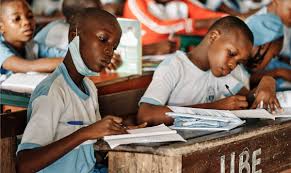The recent controversy surrounding the Minister of Education’s ban on “underage” university admissions has brought to the fore the deeper issues plaguing Nigeria’s education system. While the ban may have been well-intentioned, it is a superficial solution to a complex problem that requires a more detailed approach.

At the heart of the issue is the collapse of the public education system, which has led to a reliance on private schools. This has resulted in a situation where parents are forced to pay exorbitant fees, leading to a culture of “cram and pass” education that neglects socialization and extra-curricular activities.
The JAMB Registrar’s revelation about a 12-year-old admitted to university highlights the systemic rot in the education system. However, rather than simply banning underage admissions, the government needs to address the root causes of this problem.
One major issue is the lack of access to quality public education. Public schools have become synonymous with poor facilities, inadequate teaching, and a lack of resources. This has led to a situation where parents are forced to opt for private schools, which are often expensive and of varying quality.
The education system has become overly focused on book learning, neglecting important aspects of education such as socialization, critical thinking, and creativity. The lack of extra-curricular activities and resources for students to explore their interests has resulted in a narrow and unbalanced education.
To address these issues, the government needs to take a holistic approach that goes beyond simply banning underage admissions. This includes investing in public education, improving facilities and resources, and providing access to quality education for all.
The government needs to address the cultural and societal factors that contribute to the pressure on students to perform well. This includes reducing the emphasis on grades and academic achievement, and promoting a more balanced approach to education that values socialization, creativity, and critical thinking.
The controversy surrounding the ban on underage university admissions highlights the need for a more nuanced approach to addressing the complex issues plaguing Nigeria’s education system. By investing in public education, improving access to quality education, and promoting a more balanced approach to learning, the government can help ensure that Nigerian students receive a well-rounded education that prepares them for success in all aspects of life.



